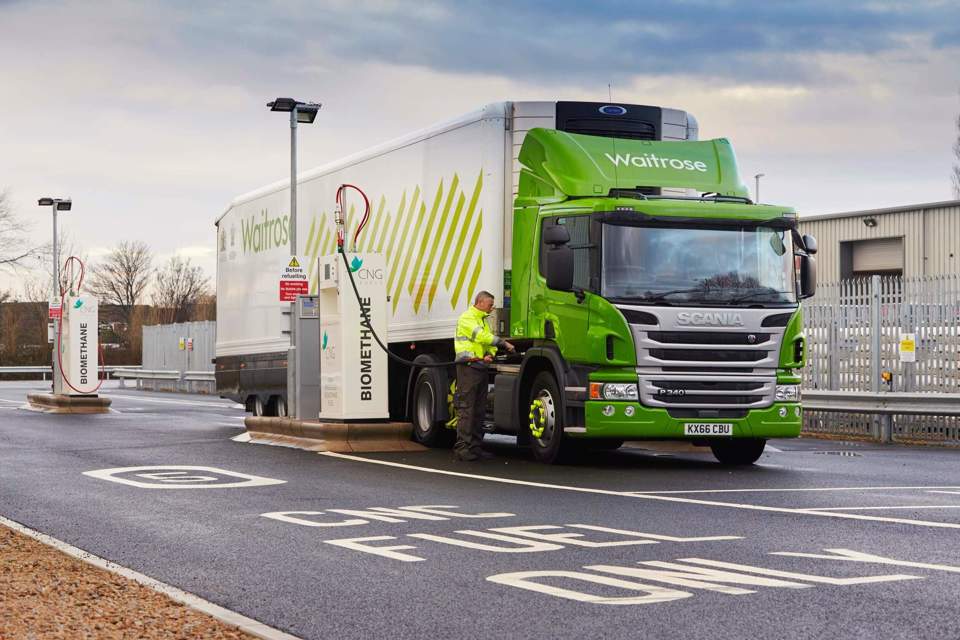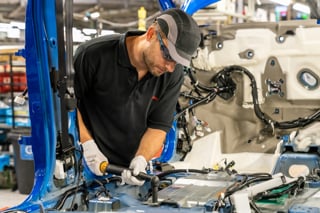The Zemo Partnership has published a new report that sets out seven key principles to inform policy on delivering net zero transport.
The report recommends an economy-wide, whole-systems approach to delivering net zero transport.
It sets out the measures needed across all policy areas to bring forward investment in low carbon technologies, create the energy infrastructure needed for a decarbonised transport system, minimise the environmental impacts of the surface transport fleet and encourage greener travel choices.
The report draws on extensive consultations conducted by Zemo Partnership in 2023 and 2024, including stakeholder interviews, roundtable discussions and a series of workshops involving Zemo’s cross-sectoral membership.
Zemo’s executive director, Claire Haigh, said: “The climate challenge is more urgent than ever. A record 15 national heat records have been broken so far in 2024. Emissions - especially from transport - will need to decline much more rapidly if the UK’s targets are to be achieved.
“The more we delay, the more the net zero transition will cost. We must move fast to seize the opportunities. An ambitious industrial strategy would act as a catalyst for new technologies and innovation, bringing jobs and manufacturing to the UK. If we get this right, we will build a cleaner, safer and fairer future for us all.”
The seven principles are:
1. Act swiftly: net zero presents huge opportunities but the UK is falling behind other economies.
2. Take a multi-path approach to decarbonising transport: replaing the entire UK car parc with zer emission vehicles will take decades; understand the role that sustainable carbon reduction fuels can play on that journey.
3. Provide a stable policy environment: moving deadlines (such as the 2030 ICE ban changing to 2035 - and now likely to revert to the original date) creates confusion.
4. Apply net zero solutions across the whole UK economy: planning, energy, grid, transport all need to be involved in the discussion.
5. Deliver at national, regional and local level: plan on an integrated long-term basis.
6. Ensure a fair and just transition: too many people are being left behuind due to the high upfront price of elecyric vehicles and access to charging infrastructure. Government needs to recognise this and provide support.
7. Take people with us: Eigth out of 10 people are concerned about climate change but that doesn;t mean they support net zero. This needs to be presented as offering a cleaner, safer, fairer transport system for all.
To coincide with the publication, the Council for Net Zero Transport announces the launch of a new Strategic Advisory Group – including CEOs of cross-sector trade organisations, which are vital to the delivery of net zero transport. The Council is chaired by The Rt Hon Lord Deben, former chair of the Climate Change Committee and Environment Secretary.
Deben said: “Climate change will get worse every year and this means that it is crucial for the Government and industry to work together to focus on delivering the UK’s legally binding target of net zero by 2050.
“The UK can and must deliver on the many opportunities offered by the fast-growing green economy. As we move into delivery, we must also face the difficult questions that we know must be addressed. That’s why now is the time to have an honest conversation about what will replace fuel duty. Road pricing cannot be dismissed.”
The Council provides a high-profile focal point for the UK’s transport transition to net zero through its delivery phase to be completed by 2050. It is an independent forum to provide strategic oversight of the development of the Delivery Roadmap for Net Zero Transport.
The Council is convened by Zemo Partnership and helps to guide and inform the activities of the Partnership’s working groups and related activities.






















Login to comment
Comments
No comments have been made yet.